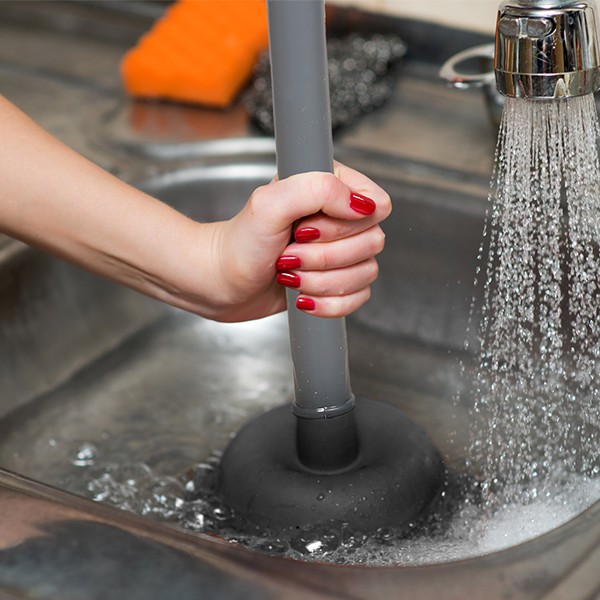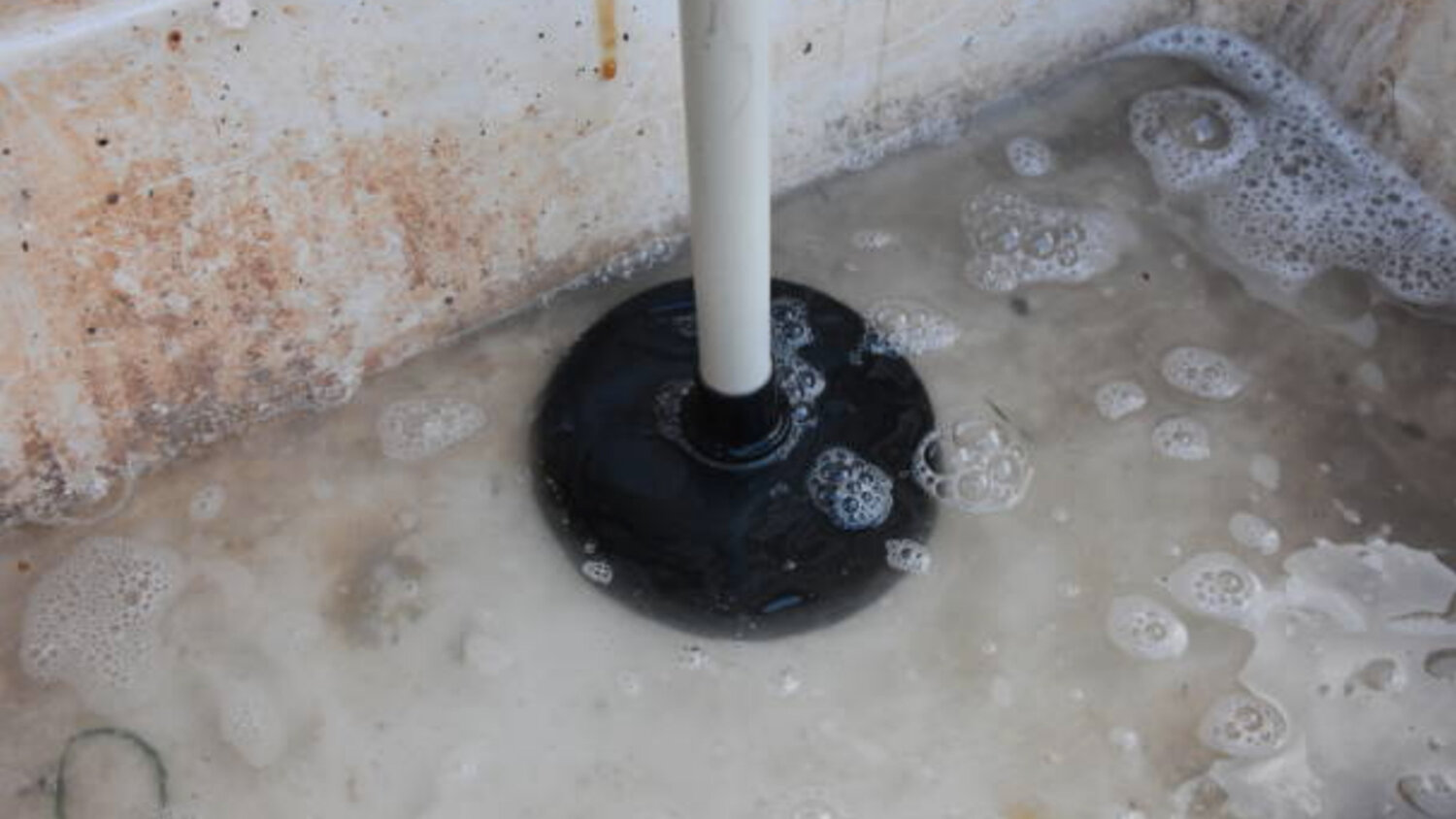Ways to Learn Plungers and Drain Cleaners: Expert Guidance
Ways to Learn Plungers and Drain Cleaners: Expert Guidance
Blog Article
The author is making a number of good annotation regarding How to Use a Plunger to Unclog a Toilet or Drain in general in this article directly below.

Intro
Correct maintenance of family drains pipes is essential for preventing clogs and making certain smooth water circulation. One of the trick devices in every property owner's toolkit is the bettor, along with various drainpipe cleansers developed to take on persistent clogs effectively. This write-up explores exactly how to use bettors and drain cleansers effectively to maintain your drains pipes flowing easily.
Section 1: Comprehending Bettors
Sorts of Plungers
There are several kinds of bettors available, each created for various types of drains and clogs. The most typical types include cup bettors, flange plungers, and accordion bettors.
How Plungers Job
Plungers deal with the concept of creating stress and suction to displace clogs. When properly applied over a drainpipe, they produce a vacuum cleaner that can take out debris or separate obstructions.
Choosing the Right Bettor
Selecting the appropriate plunger relies on the kind of drainpipe and the nature of the blockage. Mug plungers are perfect for sinks and bathtubs, while flange plungers are better fit for toilets as a result of their layout.
Common Blunders with Plungers
Staying clear of these mistakes makes certain effective plunging: inappropriate seal around the drain, inadequate force, and not clearing surrounding debris.
Section 2: Utilizing Plungers Effectively
Preparation
Before diving, make certain the plunger covers the drain totally and develops a limited seal. Clear any type of noticeable debris around the drain opening.
Strategy
Start with gentle diving activities to build suction. Increase pressure progressively, making use of a consistent rhythm. Repeat as required till the drain clears.
Repairing Tips
If diving doesn't work, try adjusting the seal, using petroleum jelly for a better seal, or making use of a different sort of bettor.
Section 3: Comprehending Drain Cleansers
Types of Drainpipe Cleaners
Drain pipes cleansers can be chemical or enzymatic. Chemical cleaners make use of solid chemicals to dissolve obstructions, while enzymatic cleaners utilize natural enzymes to break down organic matter.
Just How Drain Cleansers Job
Chemical cleaners react with obstructions to dissolve them, while enzymatic cleaners break down natural products like hair and grease without damaging pipelines.
Safety Considerations
Constantly put on gloves and eye defense when making use of chemical drainpipe cleaners. Guarantee appropriate ventilation and comply with maker directions very carefully.
Eco-Friendly Alternatives
Consider using vinegar and cooking soda or enzyme-based cleansers for environment-friendly alternatives that are much safer for pipes and the environment.
Area 4: Utilizing Drain Cleaning Company Effectively
Application Techniques
Put chemical cleaners straight right into the drainpipe opening. Allow them to help the recommended time before flushing with warm water. Chemical cleaners should rest over night.
Preventative measures
Prevent blending different types of cleaners, as this can produce toxic fumes. Never ever make use of chemical cleansers combined with a bettor, as splashing can happen.
Handling Persistent Obstructions
For persistent clogs, take into consideration making use of a pipes serpent or calling a specialist plumbing professional to stop damage to pipes.
Final thought
To conclude, understanding how to utilize plungers and drain cleansers effectively is crucial for keeping healthy plumbing systems. By picking the right devices and techniques, house owners can tackle small obstructions and prevent significant plumbing concerns down the line.
How To Properly Use A Plumbing Snake To Clear Drains
When any drain clogs in our home arise, we tend to gravitate toward the plunger and little else. In cases where the plunger and its vacuum-created pressure are not able to clear clogs, many immediately move to harmful chemicals or simply call their plumber to fix the issue.
we’re happy to help with all drain cleaning needs and concerns. This includes informing you on a few other home remedies you may have at your disposal for minor to moderate clogs, one of which is the use of a plumbing snake. Many people have never used one of these before – let’s go over the steps to take when your drain clogs and you have a plumbing snake available.
Attempt Plunger Use
The first step here, as we noted above, should indeed be to grab your plunger when you notice a drain clog and attempt to resolve it this way. If you’re unsure how to use a particular type of plunger, our plumbers can answer any questions you have. If this doesn’t do the trick, however, you move on to the snake.
Locate And Prepare Snake
A plumbing snake is a metal or plastic device that’s generally about a quarter of an inch thick. It’s design with significant extensions, meant to reach down into your clogged drain and push the clog out. Snakes also contain drain augers that will latch onto and push stubborn blockages.
If your plunger doesn’t clear a clog, locate your snake and bring it to the drain in question. We also recommend keeping a bucket nearby to collect the clog once you pull it out, plus we’d advise wearing goggles and possibly protective gloves.
Feed Snake
Once you’re ready to go, feed the snake slowly down the drain, using the crank device it comes with to keep it moving until it finds the clog. Once this happens, much of the clog will be latched onto the coil so you can pull it out, while the rest will simply break up and flow downward.
Detach Debris
Remove the snake slowly from the drain, and once you’ve done so, pick off any debris that’s stuck to the coil. This is another area where wearing gloves is a must.
Flush Drain
Finally, take a few minutes to ensure the snake has done its job correctly. If you’ve been using it on a toilet, flush the toilet a couple times and make sure everything flows well. If you’ve used it on a different drain, flush it with some room temperature water.
https://www.mybuddytheplumber.com/blog/how-to-properly-use-a-plumbing-snake-to-clear-drains/

Application Techniques
Put chemical cleaners straight right into the drainpipe opening. Allow them to help the recommended time before flushing with warm water. Chemical cleaners should rest over night.
Preventative measures
Prevent blending different types of cleaners, as this can produce toxic fumes. Never ever make use of chemical cleansers combined with a bettor, as splashing can happen.
Handling Persistent Obstructions
For persistent clogs, take into consideration making use of a pipes serpent or calling a specialist plumbing professional to stop damage to pipes.
Final thought
To conclude, understanding how to utilize plungers and drain cleansers effectively is crucial for keeping healthy plumbing systems. By picking the right devices and techniques, house owners can tackle small obstructions and prevent significant plumbing concerns down the line.
How To Properly Use A Plumbing Snake To Clear Drains
When any drain clogs in our home arise, we tend to gravitate toward the plunger and little else. In cases where the plunger and its vacuum-created pressure are not able to clear clogs, many immediately move to harmful chemicals or simply call their plumber to fix the issue.
we’re happy to help with all drain cleaning needs and concerns. This includes informing you on a few other home remedies you may have at your disposal for minor to moderate clogs, one of which is the use of a plumbing snake. Many people have never used one of these before – let’s go over the steps to take when your drain clogs and you have a plumbing snake available.
Attempt Plunger Use
The first step here, as we noted above, should indeed be to grab your plunger when you notice a drain clog and attempt to resolve it this way. If you’re unsure how to use a particular type of plunger, our plumbers can answer any questions you have. If this doesn’t do the trick, however, you move on to the snake.
Locate And Prepare Snake
A plumbing snake is a metal or plastic device that’s generally about a quarter of an inch thick. It’s design with significant extensions, meant to reach down into your clogged drain and push the clog out. Snakes also contain drain augers that will latch onto and push stubborn blockages.
If your plunger doesn’t clear a clog, locate your snake and bring it to the drain in question. We also recommend keeping a bucket nearby to collect the clog once you pull it out, plus we’d advise wearing goggles and possibly protective gloves.
Feed Snake
Once you’re ready to go, feed the snake slowly down the drain, using the crank device it comes with to keep it moving until it finds the clog. Once this happens, much of the clog will be latched onto the coil so you can pull it out, while the rest will simply break up and flow downward.
Detach Debris
Remove the snake slowly from the drain, and once you’ve done so, pick off any debris that’s stuck to the coil. This is another area where wearing gloves is a must.
Flush Drain
Finally, take a few minutes to ensure the snake has done its job correctly. If you’ve been using it on a toilet, flush the toilet a couple times and make sure everything flows well. If you’ve used it on a different drain, flush it with some room temperature water.
https://www.mybuddytheplumber.com/blog/how-to-properly-use-a-plumbing-snake-to-clear-drains/

I am very taken with Here's How to Correctly Use a Toilet Plunger and I'm hoping you liked the entire piece. If you enjoyed reading our blog post kindly don't forget to share it. I recognize the value of reading our article about Tips on How to Effectively Use a Plunger.
Call Us Today Report this page